Traneta M 2.5/500 | Tablet | 10 pcs
৳ 130.00
Brand Name: Traneta M Tablet
Generic: Linagliptin + Metformin Hydrochloride
2.5 mg+500 mg
Manufacturer: Beximco Pharmaceuticals Ltd.
Unit Price: ৳ 13.00 (3 x 10: ৳ 390.00)
Strip Price: ৳ 130.00
Therapeutic Class
Pharmacology
Linagliptin is indicated to improve glycemic control in patients with type 2 diabetes mellitus. Linagliptin is an inhibitor of DPP-4 (dipeptidyl peptidase-4), an enzyme that degrades the incretin hormones GLP-1 (glucagon like peptide-1) and GIP (glucose dependent insulinotropic polypeptide). Thus, Linagliptin increases the concentrations of active incretin hormones, stimulating the release of insulin from pancreatic beta (β) cells in a glucose-dependent manner and decreasing the secretion of glucagon from pancreatic alpha (α) cells in the circulation.
Metformin Hydrochloride is a biguanide type oral antihyperglycemic drug used in the management of type 2 diabetes. It lowers both basal and postprandial plasma glucose. Its mechanism of action is different from those of sulfonylureas and it does not produce hypoglycemia. Metformin Hydrochloride decreases hepatic glucose production, decreases intestinal absorption of glucose and improves insulin sensitivity by an increase in peripheral glucose uptake and utilization.
Dosage & Administration
Linagliptin & Metformin immediate release tablet: The dosage of Linagliptin & Metformin should be individualized on the basis of both effectiveness and tolerability. Maximum recommended dose of 2.5 mg Linagliptin and 1000 mg Metformin Hydrochloride twice daily with meals. Dose escalation should be gradual to reduce the gastrointestinal (GI) side effects associated with Metformin Hydrochloride use.
Recommended starting dose: In patients currently not treated with Metformin Hydrochloride, initiate treatment with 2.5 mg Linagliptin and 500 mg Metformin Hydrochloride twice daily.
In patients already treated with Metformin Hydrochloride, start with 2.5 mg Linagliptin and the current dose of Metformin Hydrochloride twice daily.
Patients already treated with Linagliptin and Metformin Hydrochloride, individual components may be switched to this combination containing the same doses of each component.
Linagliptin & Metformin extend release tablet: The dosage of this combination should be individualized on the basis of both effectiveness and tolerability, while not exceeding the maximum recommended total daily dose of Linagliptin 5 mg and Metformin Hydrochloride 2000 mg. this combination should be given once daily with a meal.
Recommended starting dose: In patients currently not treated with metformin, initiate this combination treatment with 5 mg Linagliptin/1000 mg Metformin Hydrochloride extended-release once daily with a meal.
In patients already treated with Metformin, start this combination with 5 mg of Linagliptin total daily dose and a similar total daily dose of Metformin once daily with a meal.
In patients already treated with Linagliptin & Metformin immediate release tablet, switch to extend release tablet containing 5 mg of Linagliptin total daily dose and a similar total daily dose of Metformin once daily with a meal.
5 mg Linagliptin & 1000 mg Metformin Hydrochloride extended-release tablet should be taken as a single tablet once daily. Patients using 2.5 mg Linagliptin & 1000 mg Metformin extended release tablets should take two tablets together once daily.
Interaction
P-glycoprotien/CYP3A4 inducer (i.e. rifampin): The efficacy of this medicine may be reduced when administered in combination.
Contraindications
Side Effects
Pregnancy & Lactation
Precautions & Warnings
Overdose Effects
In the event of an overdose with this combination the usual supportive measures (i.e. remove unabsorbed material from the gastrointestinal tract, perform clinical monitoring, and institute supportive treatment) should be employed. Removal of Linagliptin by hemodialysis or peritoneal dialysis is unlikely but Metformin Hydrochloride is dialyzable.
During controlled clinical trials in healthy subjects, with single doses of up to 600 mg of Linagliptin (equivalent to 120 times the recommended daily dose), there were no dose-related clinical adverse drug reactions.
Overdose of Metformin Hydrochloride has occurred in case of ingestion of amounts greater than 50 grams. Hypoglycemia was reported in approximately 10% of cases, but no causal association with Metformin Hydrochloride has been established. Lactic acidosis has been reported in approximately 32% of Metformin Hydrochloride overdose cases.
Storage Conditions
| Generic Name | Linagliptin + Metformin Hydrochloride |
|---|---|
| Size | 2.5 mg+500 mg |
Only logged in customers who have purchased this product may leave a review.


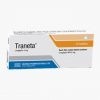

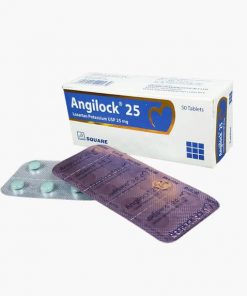

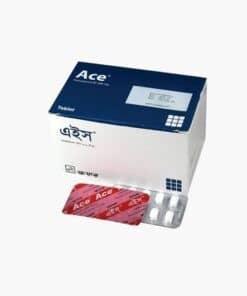
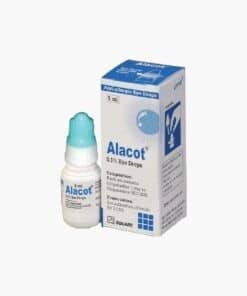
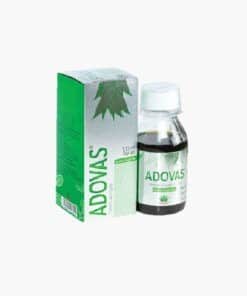
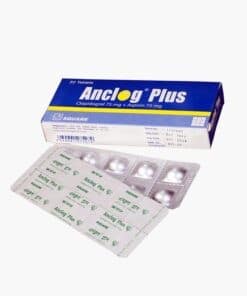
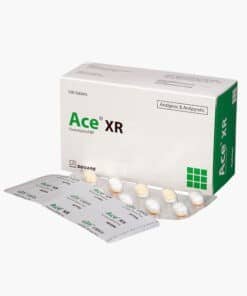

Reviews
There are no reviews yet.